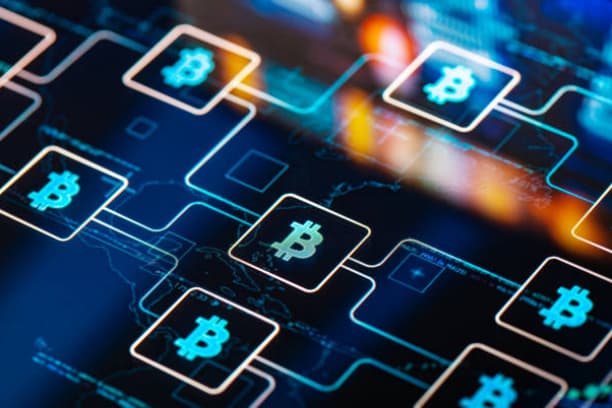Is Pi a pyramid scheme? Explanation of Pi Coin for Mobile Mining
With the rise of cryptocurrencies, more and more people have started to pay attention to various emerging currencies, and the emergence of "Pi" has triggered a lot of discussions. Some people think it's an innovative way to mine cryptocurrency, and doesn't even require a lot of resources; however, there are also many skeptics who think it may be a typical pyramid scheme, which carries a high degree of risk. Today, we're going to take a closer look at the truth about Pai Coin, help you understand whether it's a pyramid scheme or not, and explore the feasibility and risks of mobile mining, so you can make smarter decisions in this cryptocurrency craze.

What is Pie Money? A brief introduction
Pi Network is a cryptocurrency project launched in 2019 by a group of Stanford University researchers. Unlike traditional cryptocurrencies, Pi Network does not require powerful computing power to mine. Users only need to download a mobile app and start "mining" with a simple operation. This design is intended to allow more people to participate in the cryptocurrency world without having to invest in expensive hardware or large amounts of power.
Currently, PieCoin is still in the testing phase and is not listed on a major exchange. As a result, its market value has yet to be determined and this has been the focus of much discussion. Although it is officially claimed that it will become a decentralized blockchain platform in the future, some opacity in the process and unclear development plans have made many cryptocurrency enthusiasts doubtful about its future.
How to mine Pie Coins: Can mobile mining really be profitable?
Mobile mining, as the name suggests, is mining through your cell phone. To most people, this sounds very simple and appealing because it doesn't need to rely on powerful hardware and a lot of power like Bitcoin does. The process of mining PaiMoney is very intuitive. Users just need to download the app and click the "Mining" button every day to accumulate PaiMoney.
This kind of "easy mining" has also caused a lot of controversy. The arithmetic power of mobile mining is so low that it's not comparable to traditional cryptocurrency mining. As a result, the amount of coins obtained is very limited, and it is still unknown whether they can actually be exchanged for cash or real value.
The mining model of PaiMoney relies on user invitations, which is reminiscent of a pyramid scheme. According to many users, there is a mechanism within the ecosystem of PaiMoney that encourages users to invite others to join, and this type of promotion is sometimes very similar to a pyramid scheme. This has led to questions about whether it is a pyramid scheme.
Are Pie Coins a MLM? The Truth Revealed
In order to determine whether or not a coin is a MLM, we need to first understand the characteristics of MLMs. MLMs are usually characterized by the following: 1) income is primarily generated from recruiting, 2) the source of income is overly dependent on downline membership, and 3) there is a lack of an actual product or service. Based on these criteria, Coin Pie does have some similarities to MLMs, especially its reliance on inviting new users to join.
The PieCoin development team emphasizes that it aims to build a decentralized blockchain ecosystem and hopes that users will be able to use PieCoin in a variety of practical applications in the future. Although PaiCoin has not been officially launched yet, which makes its actual value unclear, it does not fully fit the definition of a pyramid scheme, as it at least has some technical background and vision.

However, it is worth noting that most of the profits in PaiMoney's current ecosystem come from user invitations rather than actual market transactions or value exchanges. As such, it is still considered to be a relatively high risk program and investors should be cautious in participating.
The Risks and Challenges of Mobile Mining
Mining with a cell phone sounds very easy, but in reality, there are many hidden risks and challenges behind it. The computing power of a cell phone is far less than that of a professional mining device, so even if the user continues to mine, the actual gain is minimal. For most ordinary users, such gains are simply not enough to compensate for possible battery loss and equipment aging.
The biggest problem with mobile mining is security. Since PieCoin's mining application has not been fully vetted for security, there is a potential risk of data leakage. Hacker attacks or application vulnerabilities may lead to loss of user funds or leakage of personal information. Therefore, when using mobile mining, you need to pay extra attention to the source and security of the application.
Finally, the returns from mobile mining are very low, and according to feedback from several users, many people have been mining for several months and still received a very limited number of coins. If the currency is eventually not traded or listed on the market, then the accumulated coins will be worthless.
How can I safely participate in the Coin Pie Program?
If you decide to participate in a cryptocurrency program, it is important to be cautious and understand the risks involved. Make sure your mobile mining apps come from official channels and avoid downloading apps from unknown sources. Don't think of mobile mining as a form of investment that can earn you a lot of profit, it's just a low-risk, low-return way to get involved.
If you wish to participate in Pai Coin in the long term, it is advisable to keep an eye on the development trend of its project, especially whether it can successfully land on mainstream exchanges with real application scenarios. If PaiCoin ultimately fails to achieve its goal of decentralization or establish a stable economy, then its value could drop significantly.
Frequently Asked Questions Q&A
Q1: Is there a real market value for Pie Money?
Currently, PaiCoin is not yet listed on a mainstream exchange, so its market value cannot be determined. Only after it is successfully decentralized and listed on an exchange will its market value be more clearly assessed.
Q2: Will mobile mining damage my phone?
Prolonged use of the phone for mining may cause a certain burden on the battery life and hardware of the phone, especially in the case of high load operation. Therefore, it is recommended that users use it reasonably to avoid excessive consumption of device resources.
Q3: Is Coin Pie a pyramid scheme?
The PieCoin promotion does come with some sort of invitation system, but it doesn't quite fit the definition of a pyramid scheme. MLMs usually don't have an actual product, and PieCoin is still looking to build a decentralized blockchain ecosystem. That said, it still needs more transparency to allay concerns.
In conclusion, as a new cryptocurrency project, there are still a lot of unknowns, and each participant needs to assess the risks and remain vigilant as to whether it is worth investing their time and effort.














